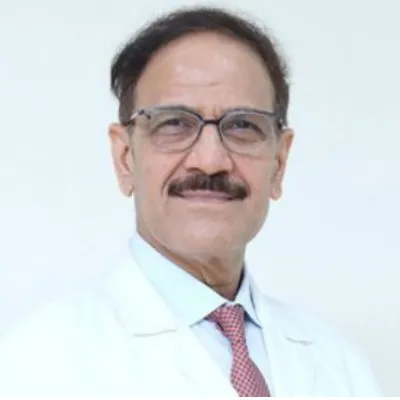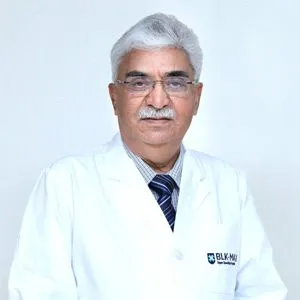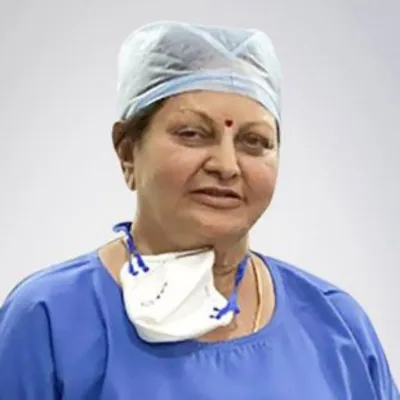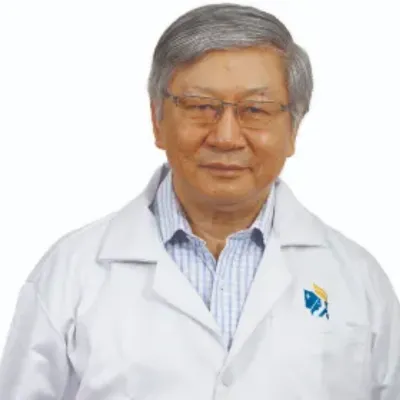Best Orthopedic Surgeons in Artemis Hospital Gurgaon
 17 December,2025
Read More
17 December,2025
Read More
Starting From: USD 25000-30000
Procedure Type: Surgical Procedure
Hospitalization Days: 7-21 Days
Procedure Duration: 4-6 Hrs
Recovery Time: 13-26 Weeks
Success Rate: 90%
Heart Transplant is affordable in India. The cost of Heart Transplant in India lies between USD 25000-30000. The exact procedure price depends on multiple factors such as the surgeon's experience, type of hospital, severity of the condition, patient's general condition,�etc.
Heart transplant surgery involves replacing a diseased or failing heart with a healthy donor heart. It is generally recommended for patients with end-stage heart failure or severe coronary artery disease when other treatments have failed. The procedure aims to improve the quality of life and increase life expectancy.
The heart transplant cost in India can depend on several factors like location, type of hospital, and the consultant specialist.
Heart transplants are considered for patients with:
The procedure has gained popularity due to advancements in surgical techniques and postoperative care, leading to improved survival rates.
Always consult a doctor to determine if you are a suitable candidate for this surgery.
Cost of Heart Transplant in India can broadly be categorized into the following approximate ranges:
These figures generally cover routine procedures performed without complications.
Here are some factors affecting the cost of Heart Transplant in India:
Here is the city-wise cost of a heart transplant in India. USD equivalents are approximate and subject to fluctuations in currency exchange rates.
|
City |
Minimum Cost (INR) |
Maximum Cost (INR) |
Minimum Cost (USD) |
Maximum Cost (USD) |
|
New Delhi |
INR 1,800,000 |
INR 2,500,000 |
USD 21,359 |
USD 30,000 |
|
Mumbai |
INR 2,000,000 |
INR 2,800,000 |
USD 21,557 |
USD 32,138 |
|
Bengaluru |
INR 2,200,000 |
INR 2,800,000 |
USD 23,952 |
USD 33,533 |
|
Chennai |
INR 1,900,000 |
INR 2,700,000 |
USD 22,754 |
USD 32,335 |
|
Hyderabad |
INR 2,000,000 |
INR 2,800,000 |
USD 23,952 |
USD 33,533 |
|
Kolkata |
INR 1,600,000 |
INR 2,800,000 |
USD 18,000 |
USD 32,000 |
|
Pune |
INR 1,800,000 |
INR 2,600,000 |
USD 21,557 |
USD 31,138 |
|
Ahmedabad |
INR 1,700,000 |
INR 2,600,000 |
USD 20,359 |
USD 31,138 |
|
Chandigarh |
INR 1,800,000 |
INR 2,500,000 |
USD 21,557 |
USD 29,940 |
|
Gurugram |
INR 1,700,000 |
INR 2,500,000 |
USD 20,359 |
USD 29,940 |
Metros like Delhi, Mumbai, and Bengaluru generally have broader cost brackets due to their higher density of high-end hospitals.
Tier 2 cities can offer slightly lower prices while still delivering high-quality care. It is always recommended to consult a healthcare provider for an accurate cost estimate.
If you want to avail of a low-cost heart transplant in India, you should conduct thorough research in advance to find the updated cost of the procedure.
Medical tourists often compare multiple destinations for the best combination of cost and expertise. Below is a generalized comparison of the average heart transplant cost:
|
Country |
Approx. Range (USD) |
|
India |
USD 25,000 – USD 30,000 |
|
Turkey |
USD 100,000 – USD 150,000 |
|
Thailand |
USD 120,000 – USD 200,000 |
|
UAE |
USD 150,000 – USD 250,000 |
|
UK |
USD 300,000 – USD 500,000 |
|
USA |
USD 1,000,000 – USD 1,500,000 |
Though countries like Turkey and Thailand are popular destinations for medical tourism, India distinguishes itself through a combination of affordable heart transplant procedures, advanced hospital infrastructure, and highly trained specialists. This unique balance makes India an increasingly preferred choice for patients seeking heart transplant surgeries.
Before undergoing a cardiac transplant in India, patients must undergo several consultations and diagnostic tests to assess their suitability for the procedure. The costs for these pre-treatment evaluations in India are as follows:
1. Consultations & Diagnostic Tests:
2. Other Evaluations:
These evaluations are crucial to ensure the patient's readiness for the transplant and to identify any potential risks that may arise.
Heart transplants are among the most complex and financially demanding medical procedures available. The cost includes pre-transplant evaluations, donor matching, the surgical procedure itself, intensive post-operative care, and lifelong immunosuppressive therapy. In India, these costs are significantly lower than in Western countries while maintaining excellent medical standards.
Most Indian hospitals accept both domestic and international insurance plans, which can substantially reduce your out-of-pocket expenses. Before proceeding, contact your insurance provider to verify coverage for heart transplant procedures in India. Confirm pre-authorization requirements, network hospitals, applicable deductibles, and coverage limits. Be specific about what aspects are covered—donor evaluations, the surgery itself, and post-transplant medications.
International patients should specifically confirm whether their policy covers heart transplant costs for foreigners in India and what documentation they'll need for claims processing. Many hospitals in India have dedicated insurance teams that handle paperwork and can arrange direct billing with your provider, making the process smoother during your recovery.
Here are some tips to help you manage Heart Surgery Cost in India:
Facing the prospect of a heart transplant brings not just physical challenges but profound emotional strain. The uncertainty of waiting for a donor match, concerns about surgical outcomes, and the overwhelming logistics of treatment can leave you feeling isolated and anxious.
For those considering treatment abroad, additional worries arise: Will I find qualified cardiac specialists? How will I manage post-operative care in a foreign country? Can I trust my life to this process? These concerns are completely natural when making such a consequential decision.
At MediJourney, we provide comprehensive support throughout your journey. From your initial inquiry about heart transplant options in India to heart transplant costs in India, our team serves as your dedicated guide, simplifying donor coordination, providing transparent cost information, and connecting you with India's leading cardiac transplant specialists. We handle everything from travel arrangements to recovery planning, allowing you to focus entirely on your health.
Whether you're navigating the emotional challenges of waiting for a donor heart or planning your post-transplant care, we prioritize your comfort, dignity, and peace of mind. Your courage in seeking this life-saving treatment inspires us, and your successful recovery is our greatest reward.
Your path to a new heart and renewed life begins here. Contact us today.
Answer: Waiting times vary depending on blood type, body size, and availability of suitable donors. It can range from weeks to months.
Answer: The average success rate ranges between 85%–90% for the first year post-surgery, which is comparable to international standards.
Answer: Top cities include:

Chairman
Interventional Cardiologist
BLK-Max Super Speciality Hospital, New Delhi

Director
Cardiologist, Interventional Cardiologist
Max Super Speciality Hospital, Saket, New Delhi

Chairman
Cardiac Electrophysiologist, Interventional Cardiologist
BLK-Max Super Speciality Hospital, New Delhi

Consultant
Interventional Cardiologist
Indraprastha Apollo Hospital, New Delhi

Head of Department (HOD)
Cardiologist
Nanavati Super Specialty Hospital, Mumbai

Consultant
Interventional Cardiologist
Apollo Hospital Chennai, Greams Road
Doctor of Pharmacy
Dr. Deepanshu Siwach is a skilled clinical pharmacist with a Doctor of Pharmacy degree.?He has 4+?years of experience and has worked with thousands of patients. He has been associated with some of the top hospitals, such as Artemis Gurgaon.
Dr. Deepanshu Siwach is a skilled clinical pharmacist with a Doctor of Pharmacy degree.?He has 4+?years of experience and has worked with thousands of patients. He has been associated with some of the top hospitals, such as Artemis Gurgaon....
Dr. Aseem Ranjan Srivastava is an experienced Pediatric Cardiothoracic Surgeon specializing in Minimal Access and Robotic Cardiac Surgery. He strongly recommends prompt corrective repair when possible....
The Art of Effective Communication
 17 December,2025
Read More
17 December,2025
Read More
 16 December,2025
Read More
16 December,2025
Read More
 10 December,2025
Read More
10 December,2025
Read More
 09 December,2025
Read More
09 December,2025
Read More
 05 December,2025
Read More
05 December,2025
Read More
 04 December,2025
Read More
04 December,2025
Read More